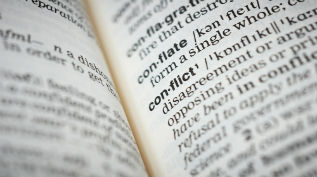
This Content Collection defines conflict of interest and self-dealing in family philanthropy, and highlights the most common problem areas, including: excessive compensation, tickets to fundraising events, and overlapping board members. Also included are recommendations for steps that foundations can take to avoid these pitfalls, including regular training, maintaining lists of disqualified persons, and adopting travel and conflict of interest policies.
Start Here!

Sample Policies and Practices

Conflict of Interest Policy (George Family Foundation)
Sample
Conflict of interest policy (Mary Reynolds Babcock Foundation)
Sample
Conflict of interest statement (Andrus Family Philanthropy program)
SampleAsk the Center: Specific Questions on Conflicts of Interest and Self-Dealing

What is a disqualified person?
Article
Naming Recognition: Is it ok to name a building after donors rather than the foundation?
Ask the Center
Is it self-dealing to attend a gala representing our foundation?
Ask the Center
Recusals: When Should Board Members Excuse Themselves?
Ask the Center
Is it Self-Dealing to Give a Grant to a Specific Child’s Tuition?
Ask the Center
Is it Considered Self-Dealing to Give Money to Local Institutions in Which the Donor Participates?
Ask the Center
Can You Avoid Conflict of Interest and Have the Family Office CFO on the Investment Committee?
Ask the Center
